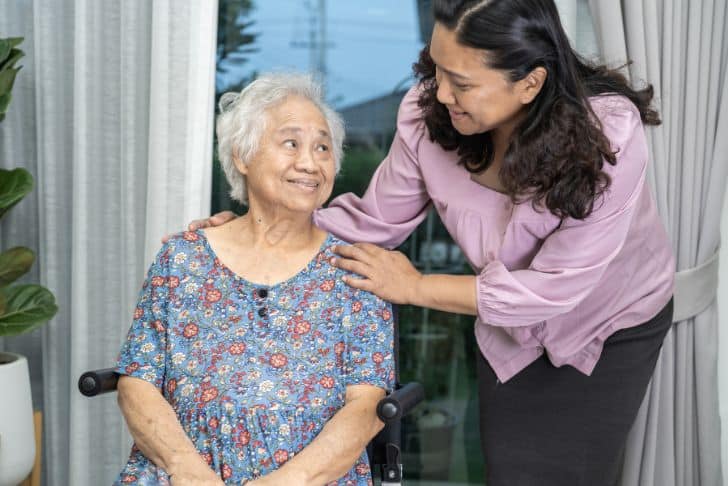In the intriguing world of caregiving, it’s critical to offer autonomy to those who are aging, all while making sure they’re safe and cared for. “Overcoming Resistance: Empowering Seniors to Maintain Independence through Caregiving Strategies” is a powerful guide to navigate this delicate balance. The article discusses the natural resistance seniors may have towards receiving help, stemming from the fear of losing their independence and altering their relationships with their adult children. Offering authoritative insights, this piece emphasizes understanding and respectful assistance as ways to make caregiving more acceptable.
It highlights the importance of involving elders in tasks rather than overtaking them, while also maintaining their privacy and dignity. Additionally, it encourages implementing assistive devices and medical alert systems to further support seniors’ independence. Yet, it also explores when and how, in extreme cases, caregivers may need to override resistance for the parent’s safety, underlining the ultimate importance of prioritizing the wellbeing of our aging loved ones.
Understanding the Concept of Independence for Seniors
As you navigate through the care journey with your aging parents, the concept of independence can play a pivotal role. Often, senior adults highly value the ability to care for themselves and make their own decisions.
Why independence is important for seniors
Just like you, your elderly loved ones want to feel in charge of their lives. Being independent makes seniors feel valued and contributes significantly to their self-esteem. It can also support their mental and physical health by giving them a sense of purpose and motivation to engage in daily tasks and social activities.
Common reasons for resistance in seniors
Seniors might resist getting help for a variety of reasons. They might fear losing their independence, and they might worry about how accepting help might influence their relationships with you. Managing these concerns thoughtfully and empathetically is crucial to ensuring a successful transition to accepting care.
Impact of loss of independence on seniors
The loss of independence can be distressing for seniors. It may bring about feelings of frustration, sadness or anxiety, and can potentially worsen their overall health. It is, therefore, essential for caregivers to support their loved ones’ independence as much as possible.
Assessing the Level of Care Needed
Determining the appropriate level of care for your senior parent can help them maintain meaningful independence while also ensuring their needs are met.
Ways to measure senior’s capabilities
Take time to observe your parent’s abilities during daily tasks. Notice if they are struggling with activities they used to perform with ease. Are they capable of cooking, bathing, dressing, and managing medications on their own? Conversations about their perceived abilities can also provide insights.
Understanding senior’s mental and physical restrictions
Understanding any mental and physical limitations your parents may have is essential in forming a comprehensive care plan. These could range from mobility issues to cognitive restrictions that can affect their daily life.
Creating a comprehensive care plan
Creating an appropriate care plan for your senior parent should take their capabilities and restrictions into account. This could include care routines, medical appointments, dietary changes, and the use of assistive devices.

Respectful and Understanding Caregiving
How you approach caregiving can significantly influence your loved one’s acceptance of care and their overall wellbeing.
Maintaining dignity and respect in caregiving relationship
Maintain a respectful conversation with your loved ones about their care needs. Empower them to make independent choices wherever possible. Allow them to lead tasks and ask for help when they need it, rather than automatically taking over.
Importance of empathy and understanding
Being empathetic and understanding is a cornerstone of successful caregiving. Encourage your loved ones to communicate their feelings about their changing needs. Let them know that it’s okay to express difficulty and ask for help.
Overcoming caregiver’s own stress and emotional challenges
Providing care to a senior loved one may also involve stress and emotional upheaval. Paying attention to your well-being is vital. Seek support when needed, whether it’s from friends, family, or professionals.
Encouraging Participation in Daily Activities
Participation in day-to-day activities helps your senior parent retain a feeling of independence and control over their life.
Promoting self-care practices
Encouraging self-care routines supports seniors’ independence by enhancing their physical capabilities and emotional health. This could be as simple as taking a leisurely walk or practicing mindfulness.
Encouraging senior’s involvement in decision-making
Including seniors in making decisions about their care boosts their autonomy and makes them feel respected and valued. It may be related to their diet, daily routine, or healthcare decisions.
Activities that help maintain cognitive and physical abilities
Engaging seniors in activities such as puzzles, gardening, or chair-based exercises can help maintain their cognitive and physical abilities, thus promoting independence.

Establishing Healthy Boundaries
As a caregiver, you may have to strike a balance between ensuring your loved one’s safety and respecting their independence.
Balancing safety concerns with respect for independence
It is important to maintain your loved one’s safety, but it should not come at the cost of their desire to be independent. Creating an environment that facilitates autonomy while upholding safety can help strike this balance.
Developing a system of consent for intervention
Respect your loved one’s privacy, and ask for their consent before getting involved in necessary tasks such as doctor’s appointment or medication management.
Handling disagreement about care levels
It is not uncommon to face disagreement about the level of care needed. Be patient and listen to your loved one’s concerns, and assure them that their thoughts and feelings are valued.
Use of Assistive Devices to Promote Independence
Assistive devices and technology can significantly help seniors continue to live independently.
Types of assistive devices available
There are a variety of assistive devices available, including mobility aids like canes and walkers, bathroom safety equipment, communication devices, and medication management devices.
How to integrate these devices into daily routine
Assistive devices should be integrated into your parent’s daily routine based on their need and comfort. It may involve gradual familiarization with the device and its benefits.
Benefits of medical alert systems
A medical alert system can provide quick access to help in case of any emergency, providing both you and your loved one with peace of mind.

Handling Cognitive Impairment Issues
If your parent faces cognitive issues like dementia, there are mindful ways of fostering their independence.
Early symptoms of cognitive impairment
Recognizing early signs of cognitive impairment can help you provide timely care. These might include forgetfulness, confusion, difficulty with daily tasks, mood swings, or changes in personality.
Dealing with resistance due to cognitive impairment
Resistance can often stem from confusion and fear associated with cognitive impairment. Dealing with this resistance empathetically can build a better rapport and ease the transition to the necessary care.
Working with medical professionals in dementia care
Regular consultation with medical professionals specializing in dementia care can provide guidance and support to address the unique needs of your loved one effectively.
Helping Seniors Retain Social Independence
Social connections are significant in boosting seniors’ sense of independence and wellbeing.
Promoting social activities and relationships
Encourage your loved ones to interact with their friends, neighbors, and community members. Regular outings, club meetings, or simple conversations can improve their morale.
Benefits of group activities and senior clubs
Group activities and senior clubs provide opportunities for social connections while also engaging the cognitive and physical abilities of your loved ones.
Role of technology in maintaining social connections
Technology creates new opportunities for maintaining social connections. Video calls, social media, or online communities can be valuable sources of social engagement for seniors.
Importance of Maintaining Regular Healthcare
Regular healthcare is vital to ensure your senior parent remains healthy and independent.
Organizing doctor’s appointments
Arrange and keep track of medical appointments, making sure your loved ones understand the importance of these meetings and their role in maintaining health.
Monitoring medication intake
Monitor medication intake to make sure they are taking the right medication at the right time. Pill organizers or apps can be helpful tools in this regard.
Ensuring adherence to health and lifestyle advice
Encourage your loved ones to adhere to their doctor’s advice on diet, exercise, and lifestyle changes. Explain how these can support their health and independence.
Taking the Best Care While Respecting Independence
Taking care of aging parents comes with a delicate balancing act between ensuring safety and respecting independence.
Resolving caregiver’s dilemma between safety and independence
While it’s crucial to ensure your parent’s safety, don’t let it overshadow their need for independence. Instead, look for ways to empower them while also setting up systems for their safety.
Importance of caregiver health and self-care
Taking care of yourself is just as crucial as caring for your parent. Be mindful of your mental and physical health, seek help when you need it, and practice self-care regularly.
Above all, prioritizing the wellbeing of the senior parent
While providing care, always prioritize your parent’s wellbeing. Pay attention to their desires, respect their need for independence, and above all, ensure they feel loved and valued. Now go forth and do your best in this caregiving journey. It’s not always easy, but it’s worth every moment.
